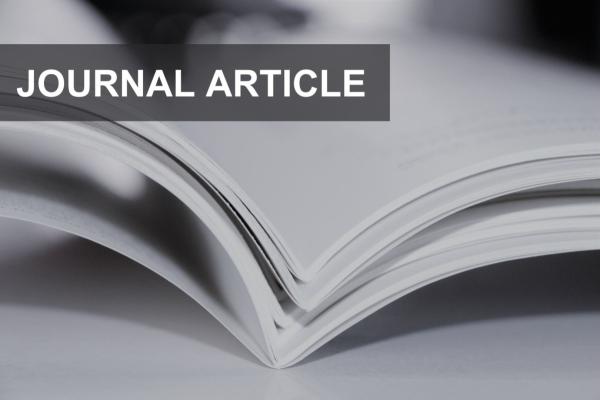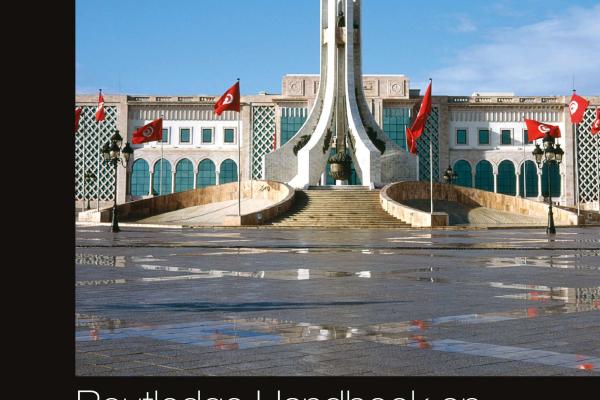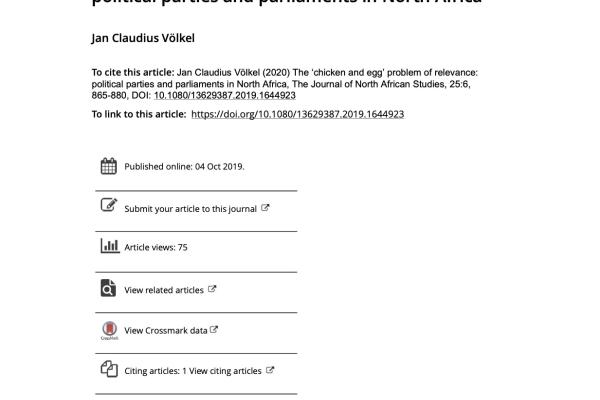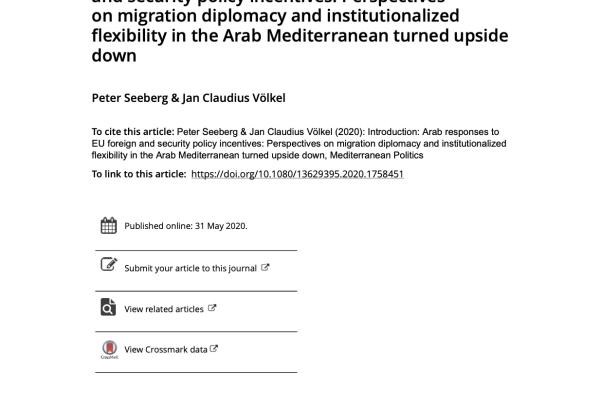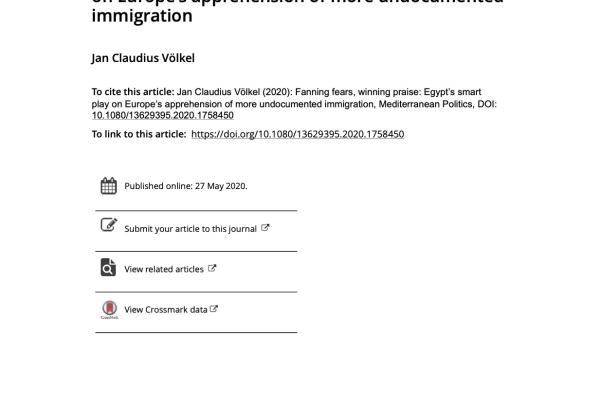
2018 - 2019Warwick University, Department of Politics and International Studies (PAIS, two months)
2018 Southern Denmark University, Centre for Contemporary Middle East Studies (one month)
2017 Southern Denmark University, Centre for Contemporary Middle East Studies (one month)
2016 Royal Scientific Society, University of Jordan, Amman (one week)
2016 Al-Quds University, Abu Dis, Palestine (West Bank, one week)
2015 Royal Scientific Society, University of Jordan, Amman (one week)
2015 Al-Quds University, Abu Dis, Palestine (West Bank, one week)
2015 University of Dundee, Politics and International Relations, UK (one month)
2014 Bahçeşehir Üniversitesi, Department of Political Science and International Relations, Istanbul, Turkey (one month)
2013 Université de Montréal, Centre d’études et de recherches internationales, Canada (one month)
2009 - 2010 University of Dohuk, European Studies Centre, Iraqi-Kurdistan (two months)
(2021) Special issue on “Parliaments in the Middle East and North Africa: A Struggle for Relevance”, Middle East Law and Governance, 13(3) (with Paul Esber, University of Sydney).
(2021) European Support for Arab Parliaments – A Successful Way to Democracy?, Middle East Law and Governance, 13(3): 363-385, https://doi.org/10.1163/18763375-13031232.
(2021) A Struggle for Institutionalization: The Tunisian ‘Assemblée des Représentants du Peuple’ and the dominance of consensus-oriented politics, Middle East Law and Governance, 13(3): 272-293, https://doi.org/10.1163/18763375-13031234 (with Chahd Bahri, Université de Sousse).
(2021) The Fingers of the “Invisible Hand”: Egypt’s Government Institutions, in: Robert Springborg, Sarah Smierciak, Amr Adly, Naomi Sakr et al. (eds.) Routledge Handbook on Contemporary Egypt, London: Routledge, 107-119.
(2020) Pawns in the Army’s Hands: Political Parties in Military-Dominated Regimes, in: Francesco Cavatorta, Valeria Resta and Lise Storm (eds.) Routledge Handbook on Political Parties in the Middle East and North Africa, London: Routledge, 125-136.
(2020) Fanning Fears, winning Praise: Egypt’s Smart Play on Europe’s Apprehension of more Undocumented Immigration, Mediterranean Politics, online first, https://doi.org/10.1080/13629395.2020.1758450.
(2020) Introduction: Arab responses to EU foreign and security policy incentives: Perspectives on migration diplomacy and institutionalized flexibility in the Arab Mediterranean turned upside down, Mediterranean Politics, online first, https://doi.org/10.1080/13629395.2020.1758451 (with Peter Seeberg, Southern Denmark University).
(2020) The “Chicken and Egg” Problem of Relevance: Political Parties and Parliaments in North Africa, The Journal of North African Studies, 25(6): 865-880, https://doi.org/10.1080/13629387.2019.1644923.
(2019) The Impact of Brexit on the European Parliament: The Role of British MEPs in Euro-Mediterranean Affairs, in: Christiansen, Thomas / Fromage, Diane (eds.) Brexit and Democracy: The Role of Parliaments in the UK and the European Union”, London: Palgrave Macmillan, 263-291.
(2018) Political Science in Egypt: Talkin’ bout a Revolution, in: Kohstall, Florian et al. (eds.), Academia in Transformation. Scholars facing the Arab Spring, Baden-Baden: Nomos, 49-68.
(2017) Sidelined by Design: Egypt’s Parliament in Transition, The Journal of North African Studies, 22(4): 595-619 (open access).
(2017) Der Einfluss politischer Parteien auf die Politikgestaltung in Nordafrika (The influence of political parties on policy-making in North Africa), in: Faath, Sigrid (ed.), Politische Parteien in Nordafrika, St. Augustin: Konrad-Adenauer-Stiftung, 79-102 (in German).
(2017) When Interior Ministers play diplomat: fatal ambiguities in Europe’s securitised migration policy, in: Jünemann, Annette / Fromm, Nicolas / Scherer, Nikolas (eds.), Fortress Europe? Challenges and Failures of Migration and Asylum Policies, Wiesbaden: Springer, 83-103.
(2017) Khurug britaniyya min al-ittahad al-urubi: at-tada‘iyyat ‘ala ash-sharq al-awsat wa mintaqa shimal ifriqiyya (The British exit from the European Union: implications for the Middle East and North Africa), al-Dimuqratiyya (Democracy Review), 65 (January): 156-169 (in Arabic).
(2015) Military in Mali. The EU’s action against instability in the Sahel, European Foreign Affairs Review, 20(2): 159-185 (with Chantal Lavallée).
(2015) Complex politics in single numbers? The problem of defining and measuring democracy, Middle East Critique, 24(1): 67-81.
(2014) Money for nothing, the cricks for free – Five paradoxes in EU migration policy, Comparative Migration Studies, 2(2): 151-180 (open access).
(2014) More for more, less for less – more or less: A critique of the EU’s Arab Spring response à la Cinderella, European Foreign Affairs Review, 19(2): 263-282; republished in Tonra, Ben / Whitman, Richard / Young, Alasdair (ed.) (2016): Foreign Policy of the European Union. London: Sage.


